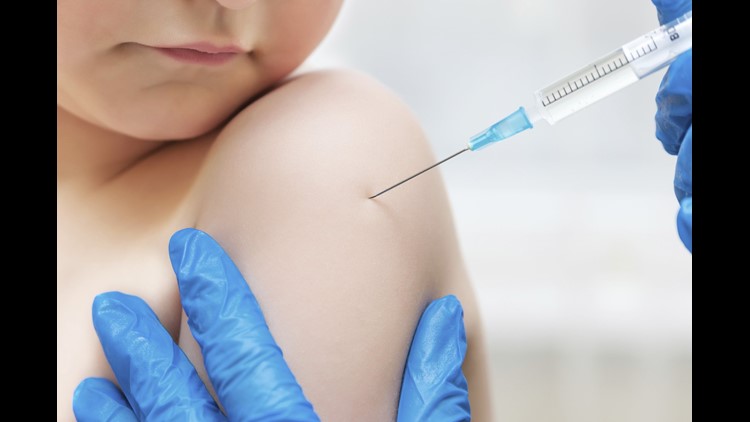HARRISBURG — The Wolf administration is urging parents and guardians to get their children vaccinated against life-threatening diseases as back-to-school preparations begin in Pennsylvania.
“Now is the perfect time to get your children up-to-date on their vaccinations before the start of the new school year,” Secretary of Health Dr. Rachel Levine said in a press release. “When children aren’t vaccinated, they are at greater risk of developing serious illnesses such as hepatitis B, influenza, measles, meningitis, and mumps. Unvaccinated children can also spread these vaccine-preventable diseases to others in their classrooms and community, especially young children who are too young to be fully vaccinated and those with weakened immune systems.”
August is National Immunization Awareness Month, reminding people of all ages to make sure their vaccine records are up-to-date. Vaccination is one of the best ways parents can protect infants, children and teens from serious childhood diseases. Vaccine-preventable diseases can be very dangerous, may require hospitalization, or even result in death.
In 2017, state regulations changed the provisional period in which students could attend school without their vaccinations from eight months to five days. Children in grades K-12 need the following immunizations for attendance: four doses of the diphtheria, tetanus and acellular pertussis (DTaP); three doses of hepatitis B; two doses of measles, mumps, rubella (MMR); four doses of polio; and two doses of, or evidence of immunity, from chickenpox.
Students entering the seventh grade also need the meningococcal conjugate vaccine (MCV) and diphtheria, tetanus and acellular pertussis (DTaP) vaccine. A second dose of the MCV is now required for all 12th-grade students to protect against meningitis. If a child does not have at least one dose of these vaccinations, he or she can be excluded from school.
Sometimes children experience mild reactions from vaccines, such as pain at the injection site, a rash, or a fever, all of which are normal and temporary. Staying up-to-date with immunizations provides the best protection against disease.
These regulations allow for the following exemptions:
- Medical reason;
- Religious belief; or
- Philosophical/strong moral or ethical conviction.
Even if your child is exempt from immunizations, he or she may be excluded from school during a vaccine-preventable disease outbreak.
Under the Affordable Care Act, most insurance plans, including those bought through the federal Marketplace, are required to cover school vaccinations as a free preventive service without charging a copayment or coinsurance, regardless of whether or not you have met your yearly deductible.
“When a new school year starts, there are many costs parents have to consider with clothing, school supplies, and other expenses,” Insurance Commissioner Jessica Altman said. “Thankfully, immunizations aren’t one of them, as most insurance plans cover school vaccinations with no cost to the consumer.”
It is important to make sure that the doctor or provider who administers the immunization is within your health insurance plan’s network, or you may be responsible for the cost.
In addition, the Department of Health offers immunization clinics year-round across the state. If a child does not have insurance coverage or if insurance does not cover back-to-school immunizations, children who meet the requirements can get their vaccines at one of the state health centers or local health departments.
Immunizations are provided at little or no cost for children through 18 years of age who are Medicaid eligible, uninsured, underinsured, or American Indian or Alaska Native. The cost is $5 per child (payable by check or money order) for families above income guidelines; however, no child will be turned away because of an inability to pay.
Parents whose children meet the immunization requirements must call 1-877-PA-HEALTH (1-877-724-3258) to schedule an appointment. Parents should have their child’s vaccination records available when they call to make an appointment. A parent or legal guardian must accompany the child receiving vaccinations.
The need for vaccinations does not end in childhood. Vaccines are also recommended for adults to prevent serious diseases such as hepatitis, influenza (flu), pneumonia, shingles, and whooping cough (pertussis). Other vaccine recommendations vary based on age, lifestyle, medical conditions, occupation, past vaccinations, and travel destinations.
“You never outgrow the need for immunizations,” Dr. Levine said. “Immunizations provide protection that even adults need – particularly older Pennsylvanians or those with chronic medical conditions – to help them stay as healthy as possible.”



